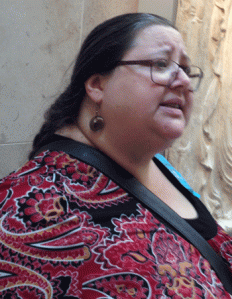Judy and Dave Lorenz of Bowie, Maryland, lead CITI Ministries (Community is the Intent), which works toward the Catholic Church’s acceptance of married priests, in keeping with the Church’s own canon laws.
This is a link to a song Judy wrote on the subject, “Rebuild My Church”:
http://www.youtube.com/watch?v=lf_nJXPeysM&list=UUGh3NQy-vs_6URZoWrMnZTw&index=1
 Jack Wentland of Glastonbury, Connecticut, is a married priest who performs wedding ceremonies for couples who, for various reasons, cannot be married in the church.
Jack Wentland of Glastonbury, Connecticut, is a married priest who performs wedding ceremonies for couples who, for various reasons, cannot be married in the church.


 Caravaggio’s hot temper and propensity to wind up in drunken brawls didn’t stop him from creating some of the world’s most beautiful religious art.
Caravaggio’s hot temper and propensity to wind up in drunken brawls didn’t stop him from creating some of the world’s most beautiful religious art.



